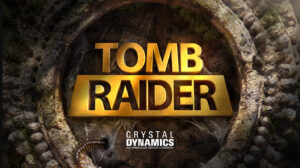Stop Killing Games is a Battleground For The Industry – Consumer Lawyer Offers Olive Branch

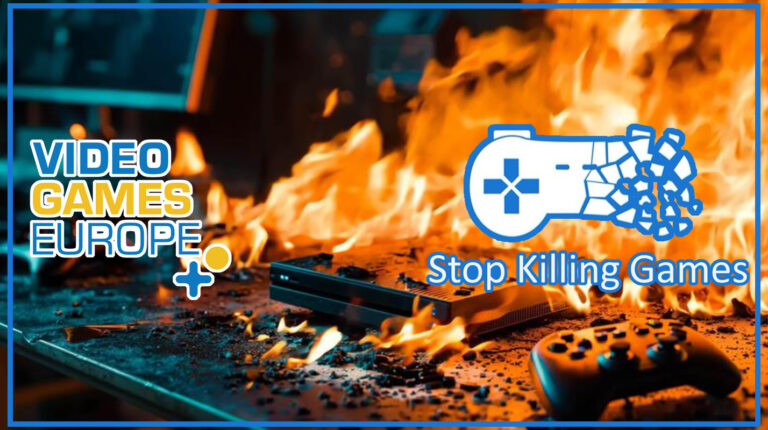
The EU is becoming an unlikely battlefield as a divisive consumer rights movement has started ripping the video game industry apart. Hundreds of millions of gamers will be affected by the outcome of the upcoming war, which has already claimed its first victim and shows no signs of taking prisoners.
Stop Killing Games (SKG) was started by YouTuber Ross “Accursed Farms” Scott, and its main aim is to protect gamers as consumers, by ensuring that video game companies provide end of life support for their titles. It’s been building up steam over the last few weeks, and while battlelines in the UK have been drawn with a successful petition to government, the main EU petition is still open for signatures until July 31.
SKG fired the first shots and an industry interest group, Video Games Europe (VGE), has returned fire, but this isn’t a straightforward question of sides. SKG represents consumers and gamers, while the VGE represents business and gamers, with neither opponent set to bend the knee.
“No one’s really prepared to admit anything and kind of give a little bit to come to a middle ground,” Sam Crich, an industry lawyer specializing in commercial and video game law from Eaton Smith, told Eneba. “But the other issue is how do you let people maintain things without giving up your valuable intellectual property rights? That’s the big thing.”
Jump to:
Types of Games The Initiative is Targeting
A core focus, from both supporters and detractors, is online/live service games. However, SKG is aimed at all types of video games, not specific ones. And, importantly, only those games which would be covered by a change in the law; SKG isn’t designed to go after already-published games.
“It can be a little reactionary where that’s one message we maybe didn’t get out clearly enough is that the initiative is not retroactive,” Scott told Eneba. “I think that’s where they (detractors) were going with it because they think I’m saying: ‘oh yeah, just give them (players) the files.’ It’s all done. Like (the detractors) are thinking, ‘This idiot doesn’t understand anything that’s going on,’ and then I’m trying to explain: ‘No, but you need to intercept it at some point in the future.’”

Stop Killing Games is not looking to force companies to make existing games work after they decide to stop supporting them. Instead, the initiative wants to change the industry so that plans can be put in place to allow players of games (that come out under the new law) to be able to load and run a game, years after release, regardless of whether it’s an online or offline one.
The online/live service confusion is easy to understand, and an easy point for people to focus on, because these are popular types of games and the ones that tend to make the news. Plus, they pose a seemingly insurmountable problem in that people assume, or are told, that keeping an online game running is almost impossible or too complicated, despite evidence to the contrary on multiple occasions.
Examples include City of Heroes, Warhammer 40,000: Dawn of War II, and Duelyst, a CCG bought and then closed down by Bandai Namco in 2017 – these all received revivals or continued support.
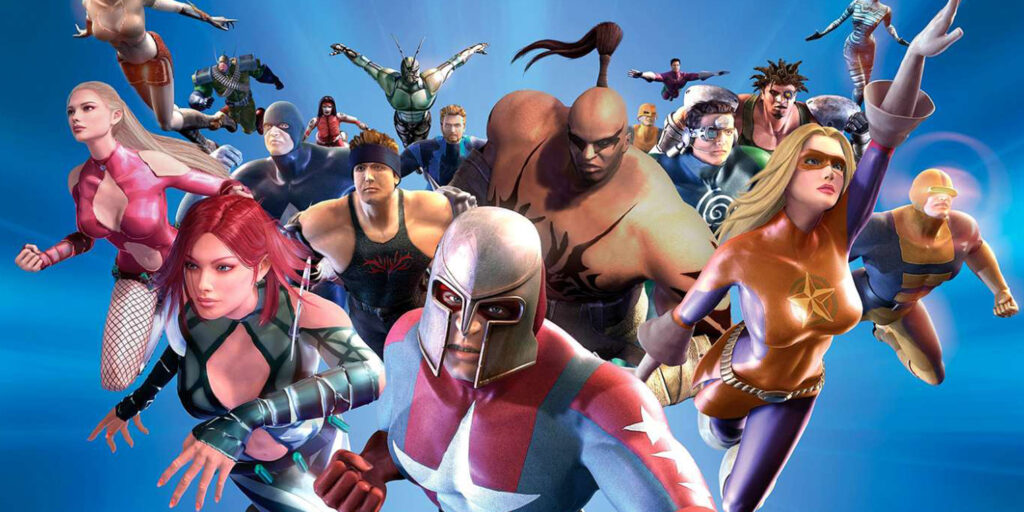
Duelyst was resurrected as Duelyst 2 in 2022, based on an open source version of the original game’s code, and still receives updates. Despite being released in 2009, Dawn of War 2 multiplayer is still possible, and City of Heroes’ publisher, NCSOFT, granted the community an official license to keep going in January 2024.
Live Service Games Bite The Dust
However, other games weren’t so lucky last year: approximately 25 titles with live service features shut down in 2024, from AAA companies. The Crew, by Ubisoft, is often cited as a major touchstone for the SKG initiative, after the French gaming industry giant shut it down last year and rendered it unplayable – even though it has a single player mode.
A recent EA live service example is Anthem, which stopped receiving updates four years ago and is finally sunsetting in January 2026. Steel Hunters, from Wargaming, is another online game that is set to shut down completely in October this year, after only launching in April. This news, however, is at least accompanied by the studio unlocking extra content and allowing custom matches as a final show of appreciation for players.
Even so, live service games aren’t going anywhere. As noted by a recent New York Times article, 95% of game studios surveyed in 2023 were working on live service games. This number was backed up in a recent white paper by the Live Service Gaming North America Summit, which also highlights how the live service gaming market is expected to be worth $2.6 billion in Europe by the end of 2025.
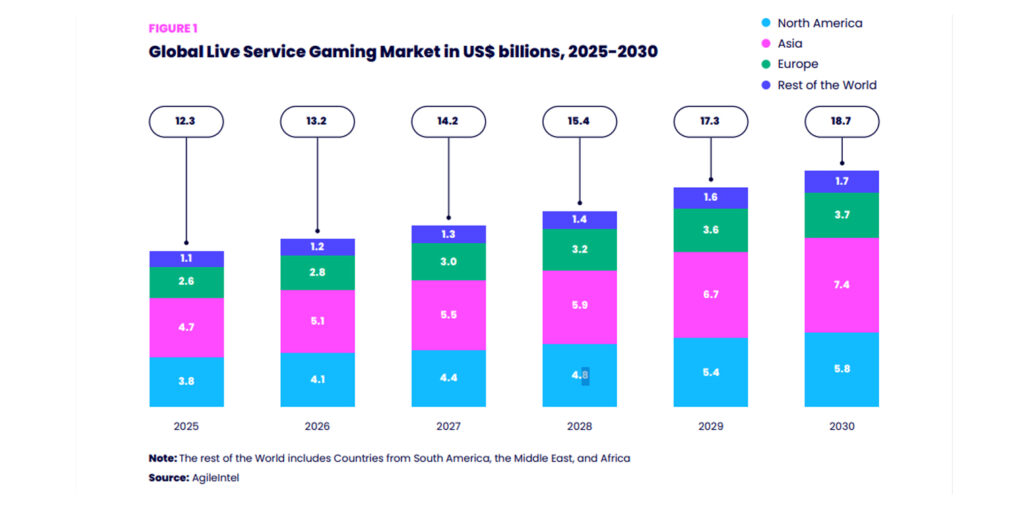
Live service games involve a lot of moving parts, which is part of the pushback from major SKG detractors. Eneba spoke to a Senior Developer linked with EA, who wished to remain anonymous, to get a better idea of what those actually involved in AAA game development think about Stop Killing Games.
“At a personal level I, and most of my colleagues, support this initiative. Whether we are working with games or – in my case – engines, we are all avid passionate gamers,” they said. “So if we support this initiative why is that? I can only theorize that we also see the other side of the coin.”
An argument can be made that asking for a technical solution like providing a server update for a game that didn’t launch that way is, is also part of the issue that non-developers might not consider, as this sort of thing causes additional costs to add up.
“Now don’t get me wrong, that single player games don’t run offline is just ridiculous. But I can see the argument that to provide a private servers update for a game that wasn’t designed that way is tricky. The real question in my book is, shouldn’t we – gamers – put pressure on publishers to take into consideration, and that even before pre-production, that any game should at some point be able to run offline or with private servers? That’s something I can imagine the EU commission could push for.”
Good Riddance to Bad Rubbish
There are multiple reasons why games die. It could be as simple as a company not having the budget to continue supporting a game, a studio getting axed by a parent company, or even licensing issues.
There’s no shortage of games with huge budgets failing commercially and subsequently getting delisted. Concord is an example from 2024. It may have crashed and burned but its removal also came with the shuttering of two studios (Firewalk and Neon Koi), 210 jobs, and eight years of work now rendered moot.
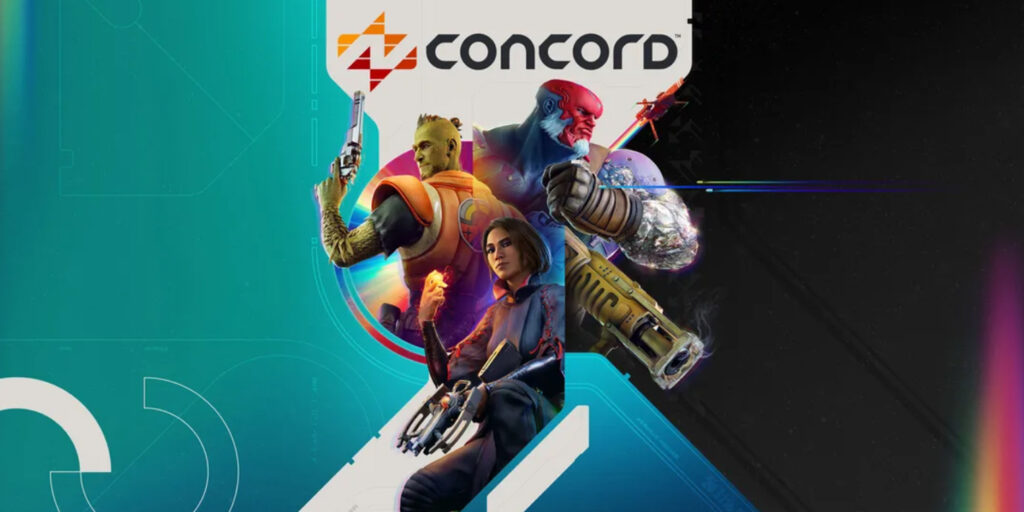
Thinking that games don’t deserve to be saved if they’ve lost players, or failed to make a profit, is missing the fundamental point of Stop Killing Games. It’s not solely about having the chance to play a game from years ago whenever a person wants – although that’s a huge plus – but rather about preserving a game as a cultural artifact.
The EU Commission published a paper in July 2023 entitled “Understanding the Value of a European Video Games Society,” a 231 page report on how and why video games are important, including as cultural objects, so there is a precedent there for the EU to take this issue seriously.
“The complete vacuum of legislation surrounding video game releases is highly concerning from a player and preservationist point of view. It’s the Wild West out there and publishers are basically free to handle the quality and lifetime of their products without challenge or standards,” Clemens Istel, from game preservation organization DoesItPlay?,” told Eneba.
“And given that lobbyist groups like the ESA (Entertainment Standard Industry) and Video Games Europe are constantly pushing against right-to-repair, preservation and everything customer rights, it is high time that someone opposed this downward trend. SKG and the outcome of their adjacent petitions and especially the EU Citizens’ Initiative will be the much needed game changer.”
Engage Detractor Beam
As much as preservationists and even top YouTube personalities such as PewDiePie have spoken out in support of the initiative, there have been loud voices raised against Stop Killing Games; that’s why it’s impossible, and unfair, to talk about the initiative and not acknowledge its detractors.
Most notable among them and the first casualty in this war, is PirateSoftware, aka Jason Thor Hall, an indie dev and former Blizzard employee. He published multiple videos and social media posts against the initiative, but these often included doubling down on misconceptions and outright untruths, rather than coherent debate. He has since lost over 110,000 subscribers and all but vanished. Eneba reached out to Hall for comment to clarify his remarks, without response.
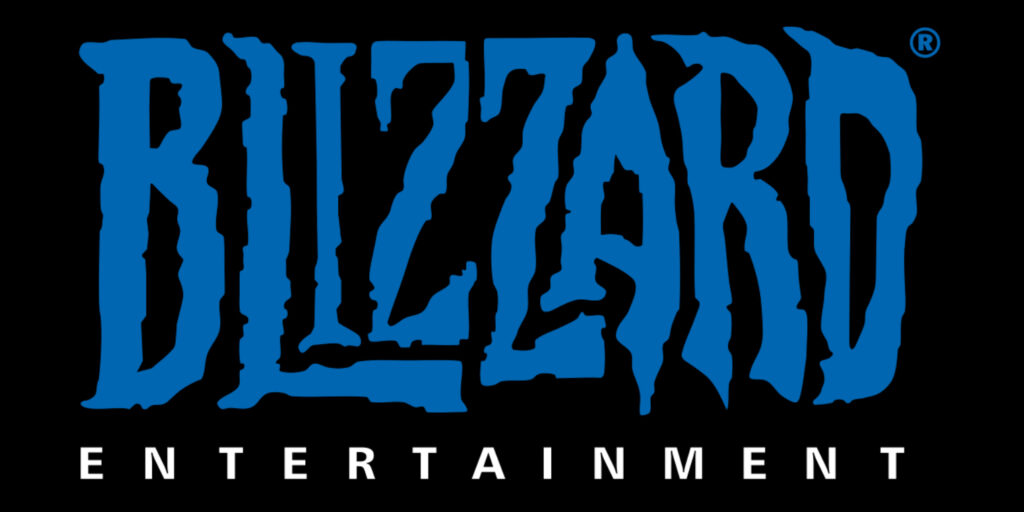
Then there’s the big guns: Video Games Europe (VGE). An organization formed from huge companies including Blizzard, EA, Ubisoft, Riot Games, Bandai Namco, and 16 more. VGE has released a statement, and a five-page Position Paper, about why Stop Killing Games is not feasible.
Part of VGE’s whole deal is that it’s an industry advocacy group in the EU and according to official statistics, it spent between €400,000 – €499,999 in 2024 to ensure law-makers don’t pass any legislation that contradicts its interests. These include: “To promote and stress the economic, cultural, social and scientific values of the videogame industry in a national, European and international context and to promote the recognition of this concept to legal and public authorities.”
Consumer Law And You
VGE and related organizations such as Ukie, TIGA, and the recently-formed UK Games Council share member companies, and even some board members, and all are focused on the industry side of video games. This includes making a distinction between games as cultural artifacts, and games as products.
Consumer law is why EULAs are often labyrinthine and filled with provocative language, such as Ubisoft’s terms and conditions involving how a user “must immediately uninstall the Product and destroy all copies of the Product in Your possession,” should the player, or the company, terminate the EULA for any reason.
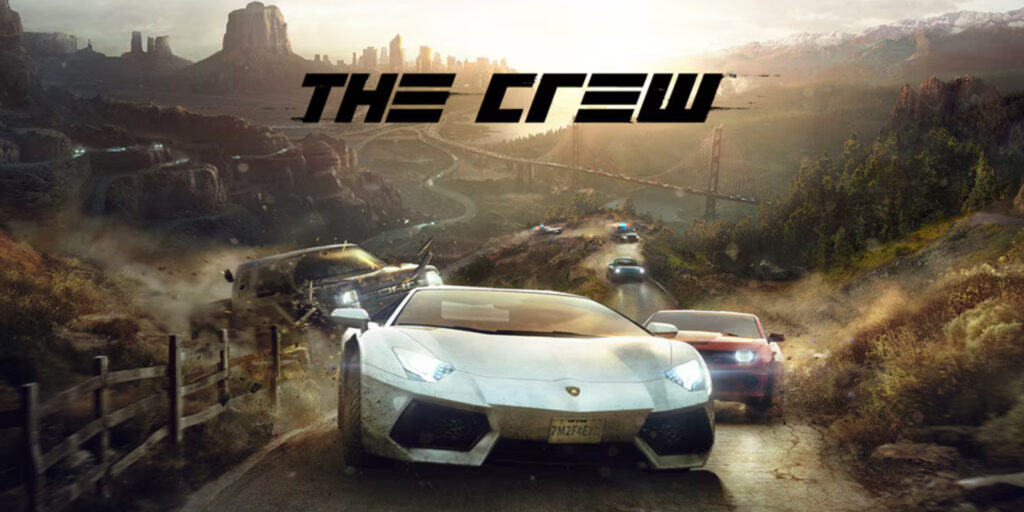
Blizzard has also come under fire for terms such as: “reserves the right to terminate this Agreement at any time for any reason, or for no reason, with or without notice to you.” How this is allowed, especially when the VGE states that “Players must be given reasonable prior notice before any termination of access to the game,” is a lot more straightforward than it may seem.
VGE and its members come from all across the world, meaning that they all follow different industry practices and laws; neither the EU nor the UK have a centralized video game department, as different parts of the government handle things such as age rating, online safety, and so on. The US has the Entertainment Standards Industry, which is equivalent to VGE, but at a federal level there isn’t a core video game department to oversee everything.
This is why an EULA should have words to the effect of ‘subject to local consumer laws.’ As an EULA has to cover a whole range of eventualities, built-in questionable clauses are trumped by local consumer laws.
A License to Print Money
One major sticking point related to EULAs is that they specify buying a license to use a game. To this end, VGE’s assertion that “All video games, whether digital or physical copies, are licensed,” and “These clear intellectual property rights underpin the entire market and enable the strong investment that the industry has seen for decades,” is correct.
Video games have been sold to consumers this way since at least the mid-1980s. “Software” and “license” are the buzzwords here, with the game being software, and the way it’s made available (eg. a download to install it) the license. Since video games as products have been gradually shifting from physical objects to digital-only, it can make the license issue seem unbalanced.

The law firm Eaton Smith has close ties to TIGA and Ukie and counts Ubisoft among its clients, and also works regularly with indie developers with free guides on video game start-up laws. With years of experience, the firm regularly deals with technical and commercial video game laws, including licenses.
“Even back in the day, you didn’t own the game,” said Crich. “You owned a physical copy. The disc is yours. They can’t come and take the disc out of your house, but you don’t own the game that’s on the disc. You still have a license to the game. It’s like you have a book, right? You own the book. You don’t own the story that’s in it.”
Question of Legality
Crich said the law is designed to be general in case it needs to be tweaked later. This lack of clarity can be confusing, and can give the impression of an imbalance of power between the consumer and the supplier.
“The issue is that there’s a bunch of legal mechanisms that exist that have been put into statute that are designed to be quite outcomes-focused. They’re trying to cover a broad spectrum of things, but they don’t really add a lot of nuance. And I think that’s what the Stop Killing Games movement is kind of calling for,” he said.
“And in this particular case, you know, especially with live service games, which I think, it’s more like 50% of them get killed off, rather than 10% of non-live service games. You know, when you have statistics that are that large, you’re talking about something that somebody’s bought and being taken away from them, or no longer being available – that does look like an imbalance of bargaining position. It does look like potential abuse.”
“And it does look like, well, it reflects badly upon the legal system if they allow consumers to be taken advantage of. So I definitely see the rationale behind demanding some sort of framework to set out in a bit more detail.”
Ways Stop Killing Games Could Work
It’s understandable that one common point many detractors, and even supporters, have made is that Stop Killing Games is “vague,” in spite of Scott’s numerous FAQs in both written and video form, and that the initiative doesn’t have a ‘one size fits all’ answer. However, Crich believes this is possible.
“To have some sort of standard across the board of ‘this is how much notice you have to give,’ and then just tell people that’s what to expect – there’s so many little tiny things that you could do that I think there is a potential one size fits all solution,” he said. “It’ll be: you can go ‘here’ to look at what you need to do to end-of-life this game. And I think that is achievable. The problem is it requires people who have knowledge of both sides.”
Scott has also suggested multiple possible solutions, including offering the equivalent of repair instructions so that the community can have a baseline to work from to keep a game running.
“The metric is: is it possible to run this game once all support from a publisher ends? It doesn’t need to be easy. It just needs to be possible,” he said.
EU Compliant
VGE might be exaggerating some of the possible downsides to end-of-life support, but it’s not wrong when it comes to wanting to protect IP. A common refrain from the general gaming public is that if it’s a choice between making a game playable or giving up the rights to it, as if by magic, it’d be economically viable for all games to remain playable.
This misses the overriding point that this relates to AAA companies with unlimited money for pressuring lawmakers. This is why VGE is confident in its statement against SKG.
The middle-ground could be making games EU compliant a selling point. Games with a sticker similar to the parental advisory ones on music CDs which mention that this game has an end-of-life plan could be the way forward.
“If you can give us reassurance versus somebody else who doesn’t, it’s a very easy way to build market share,” Crich said.
“It’s about creating the path of least resistance,” Scott said. “If it’s more expensive to not have an end of life plan than it is to have one, that’s the shining goal there.”
Knock-on Effects on an International Scale
If Stop Killing Games succeeds, there is a real chance there will be knock-on effects on an international scale as this could lead to gamers in the Americas, Asia, Australia, and Africa demanding similar consumer rights.
The UK petition stopped accepting signatures on July 14, reaching 189,891 before it closed. This is enough for the case to be taken to parliament which has two weeks to respond.
As MEPs have started to come out in support of SKG, including Nicolae Ștefănuță, Vice President of the European Parliament, and Kathleen Van Brempt, Vice Chair of Belgium’s Socialists and Democrats Group, the main EU petition has been signed by 1,384,336 people as of this writing and the number is still climbing. The petition is scheduled to last until July 31.
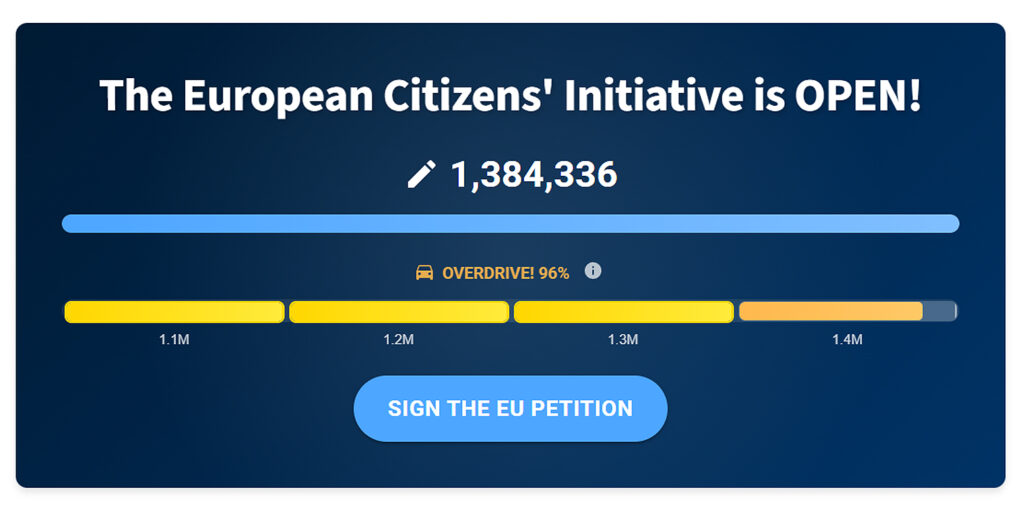
A report by TIGA from November 2024 revealed over 28,500 people make games professionally in the UK, while a recent Statista report shows that there’s likely to be 42.6 million gamers in the country by the end of 2025.
UK government statistics revealed that, in 2022, 87% of the population (aged 18+) voted – however, the UK government recently passed a law to allow 16 and 17 year olds to vote; last year, 85% of 16 – 24 year olds were found to be gamers.
Meanwhile, there are 715 million gamers in the EU, and of those, 512 million who are voters.
Regardless of the outcome of the Stop Killing Games initiative, it’s clear that hundreds of millions of gamers will be affected. The war on the horizon will claim more casualties as it rages on during the coming months, with neither side showing willingness to raise the white flag.





